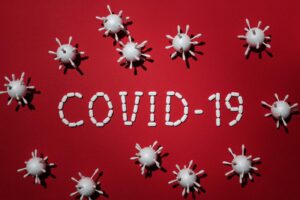
The reference lab has the capacity to sequence hundreds of COVID-19 positive swabs per week, a crucial component in the fight against the virus. Sequencing is an important step for researchers to identify new, potential variants of COVID-19. This new supplier is sequencing the most recently obtained swabs in order to find new variants as the virus progresses across the country.
The importance of sequencing
The sequencing of nasal swabs is necessary to determine which variant a patient has tested positive for, creating an additional step in the availability and preparation of variant-positive specimens for research use. Through the addition of this reference lab, we are able to quickly and efficiently support both commercial and government researchers who are working day and night to battle COVID-19.
Building on past experience
We have been working diligently with the research community to understand COVID-19. In early 2020, we began sending serum samples to the U.S. Centers for Disease Control and Prevention (“CDC”) to help researchers monitor antibody development for possible guidance on immunity. We have provided the CDC with 600 SARS-CoV-2-positive serum samples and 100 negative serum samples, mostly remnants from lab tests.
In addition, we have been contracted by other federal agencies and private companies for custom COVID-19 collections, which are often complex and complement the more immediate availability of remnant or banked samples.
In yet another project we are passionate about, blood samples are being collected from symptomatic patients who have tested positive for COVID-19, with many of those same patients returning two months later as part of a longitudinal study of how their biology, including antibody levels, have changed.
Samples are often collected across a range of geographies and reflect a variety of ages and races. In some cases, samples are genetically sequenced to identify variants. In support of research projects that require a stream of different sample types from each research subject, as many as 21 specimens have been collected and delivered from individuals in recruited cohorts, including nasal swabs, oral swabs, saliva, and blood products in various forms and quantities.
To learn more about COVID-19 specimens at iSpecimen here.
Learn about the iSpecimen Marketplace where you can browse millions of richly annotated, de-identified human tissue and biofluid biospecimens, in addition to hematopoietic and immune cell products and COVID-19 samples. You can join for free.